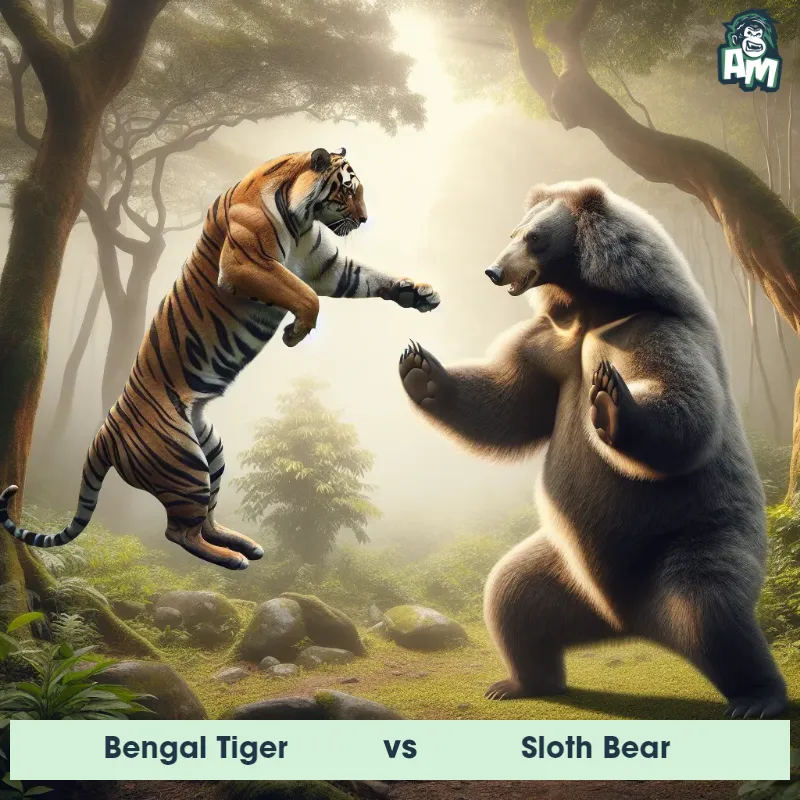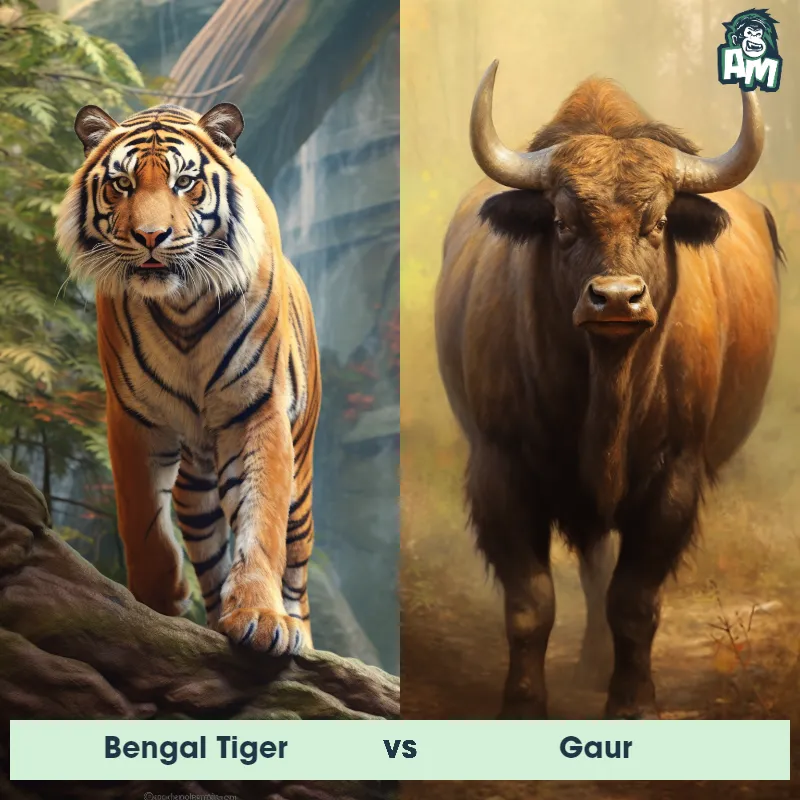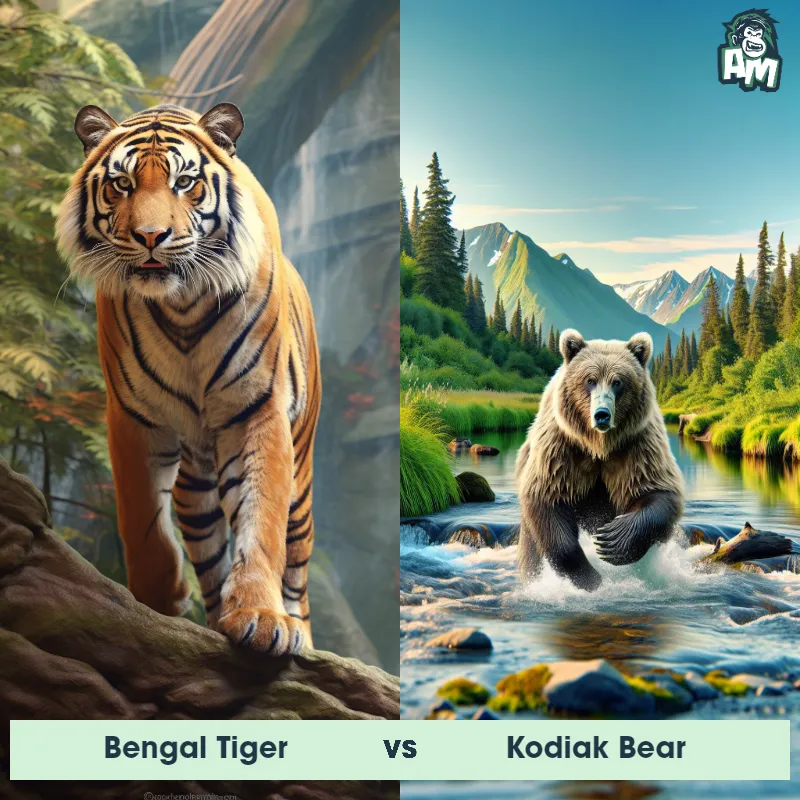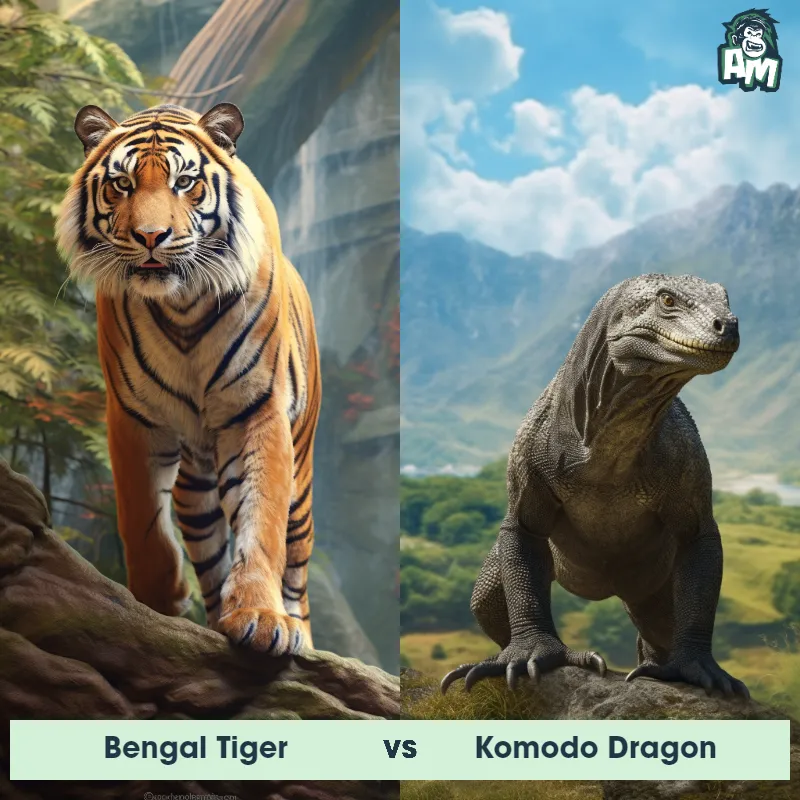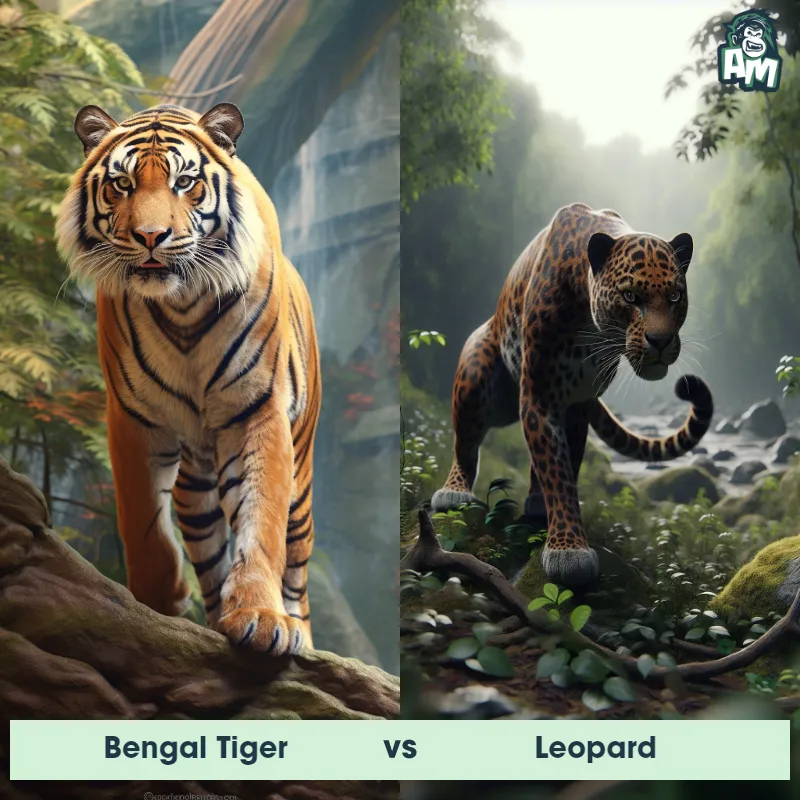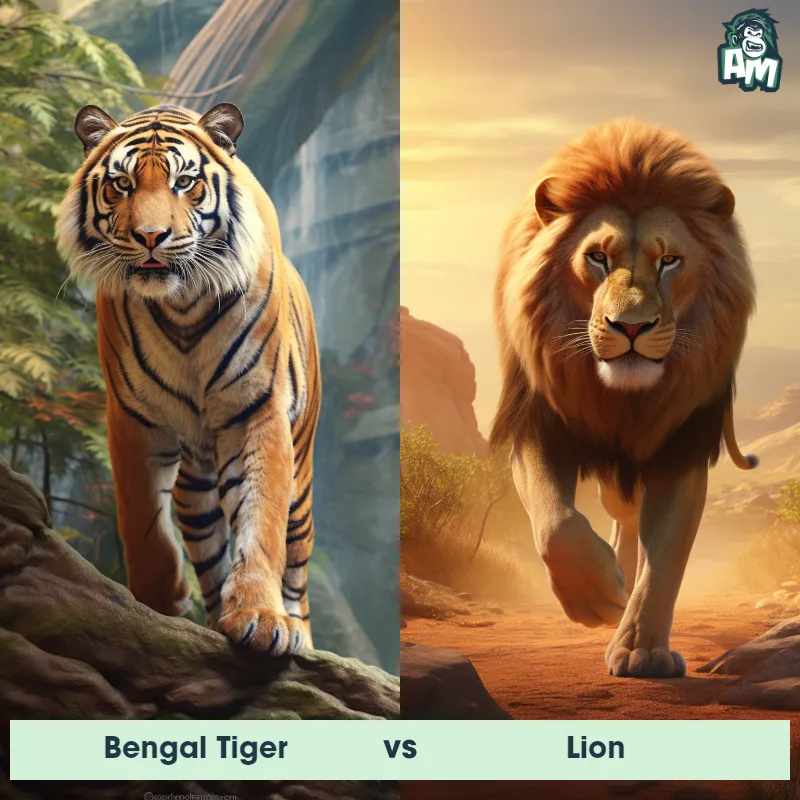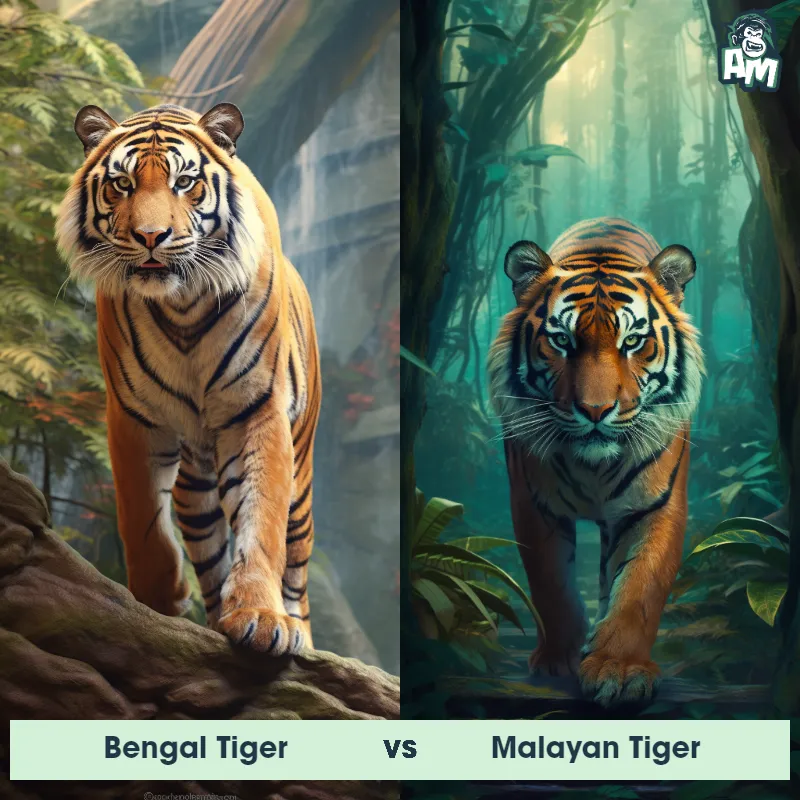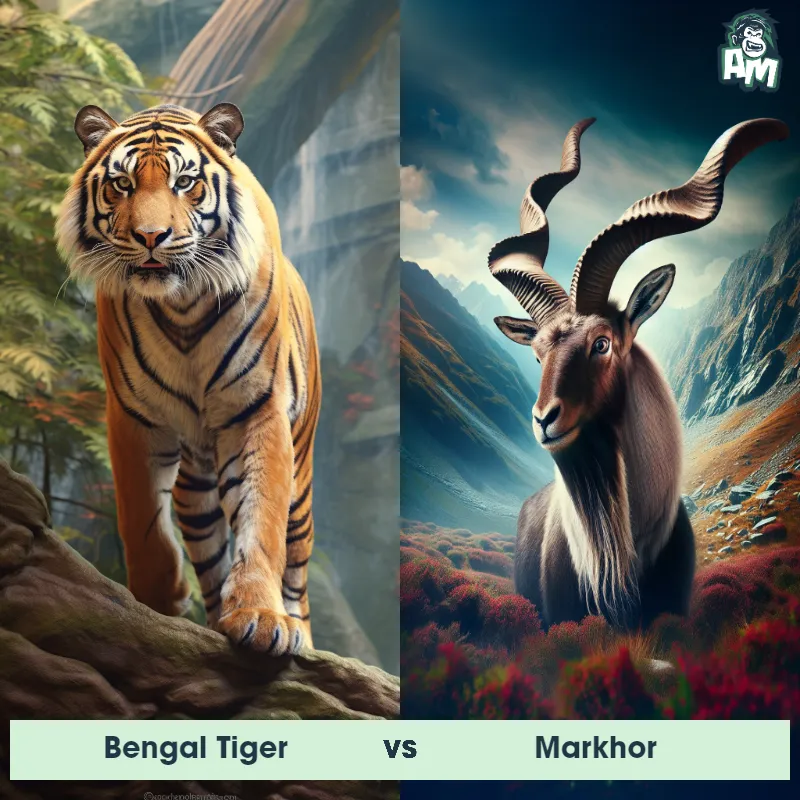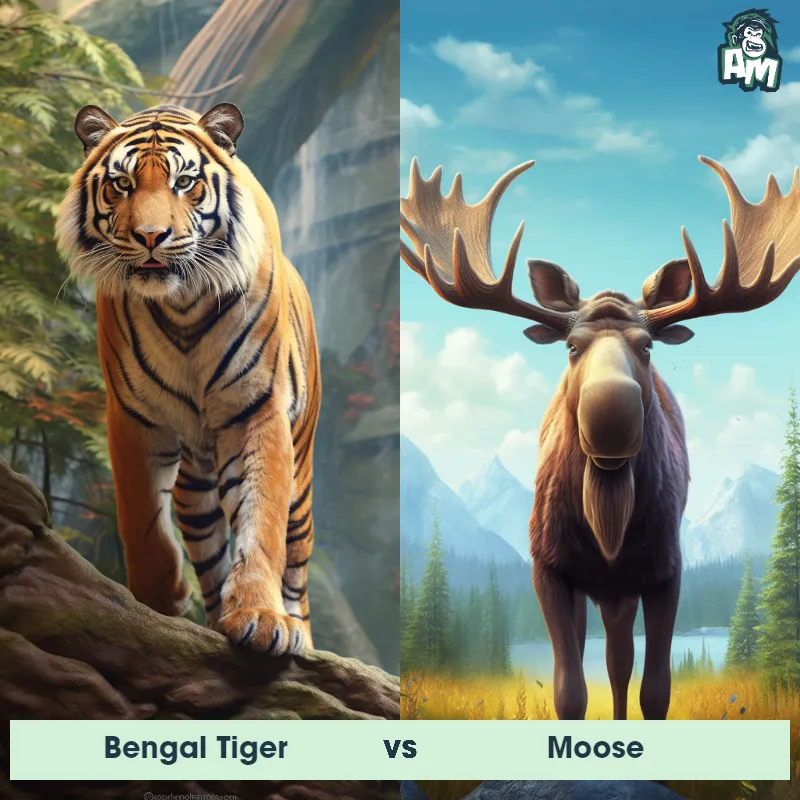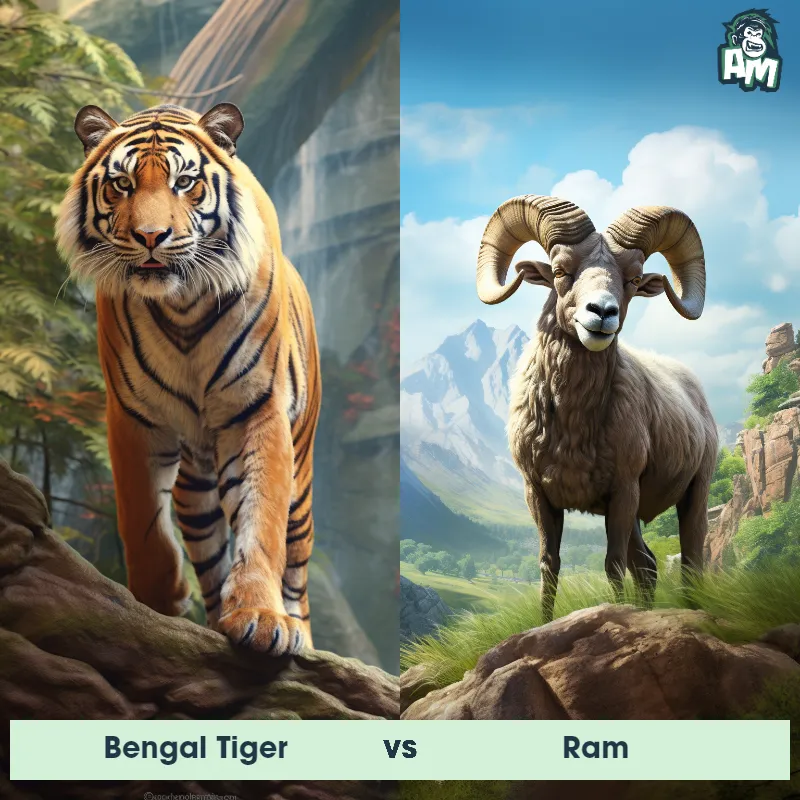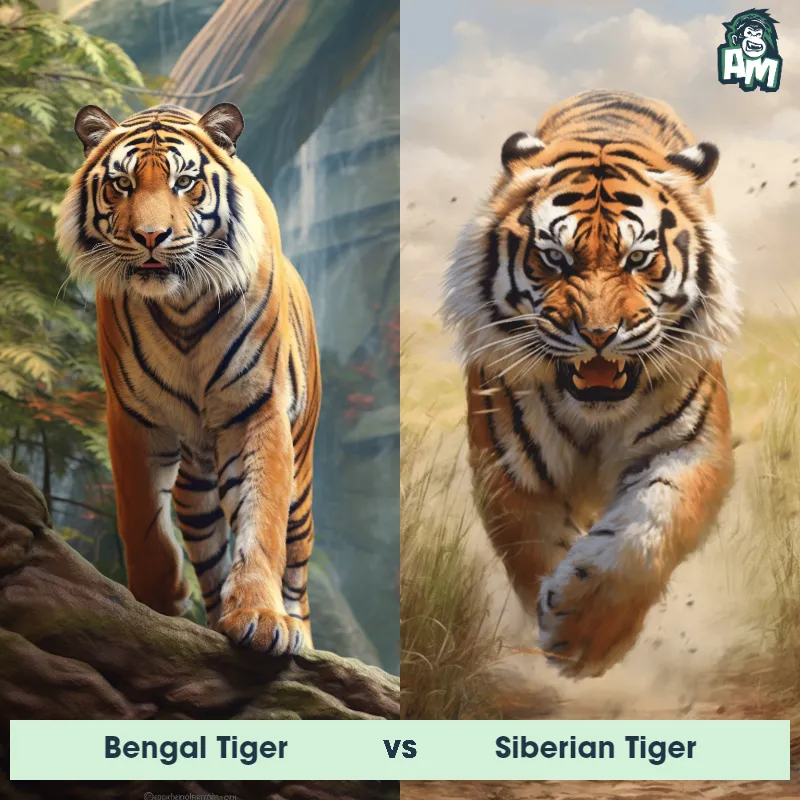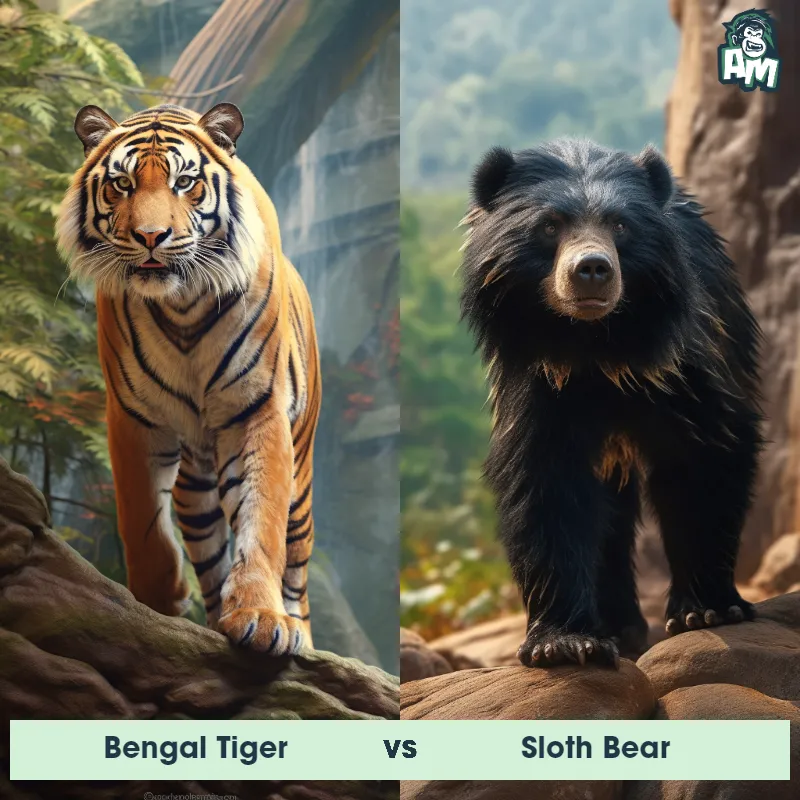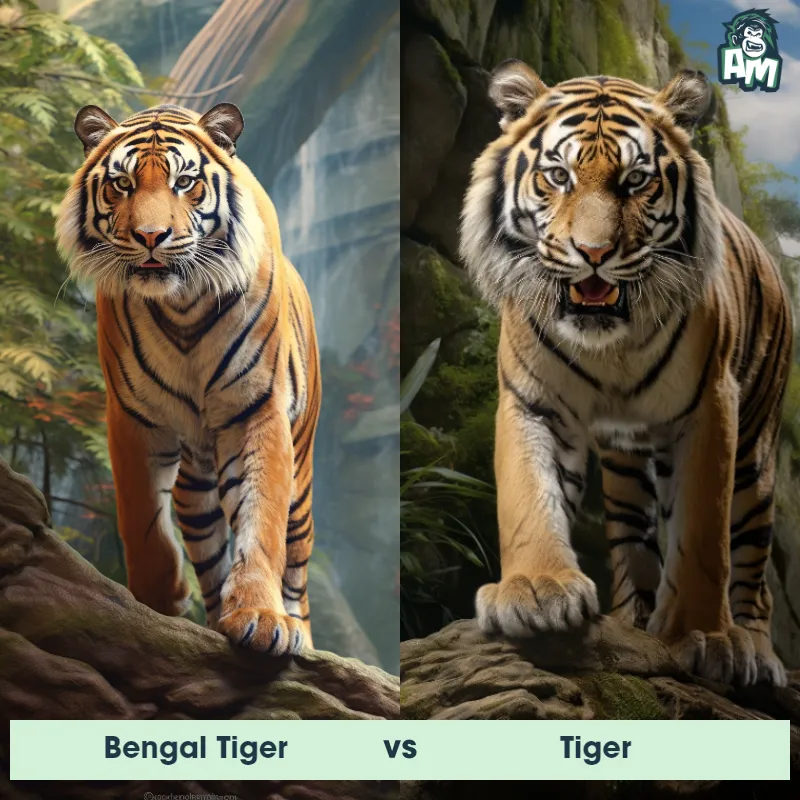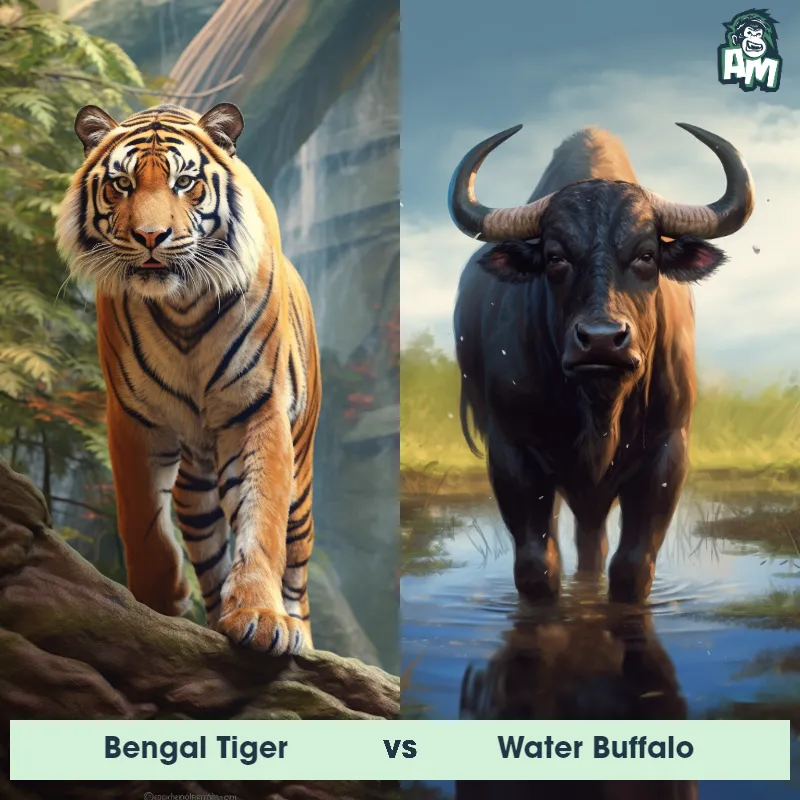The Bengal Tiger
The Bengal Tiger, also known as Panthera tigris tigris, is a majestic creature native to the Indian subcontinent. With its distinctive orange coat adorned with black stripes, the Bengal Tiger is easily recognizable. It is the largest cat species in the world, weighing up to 500 pounds and measuring over 10 feet in length, including the tail. Possessing powerful jaws and sharp teeth, these tigers are formidable hunters, preying on various ungulates such as deer and wild boar. Their keen senses of sight, smell, and hearing, along with their exceptional agility, make them proficient predators in their forested habitats.
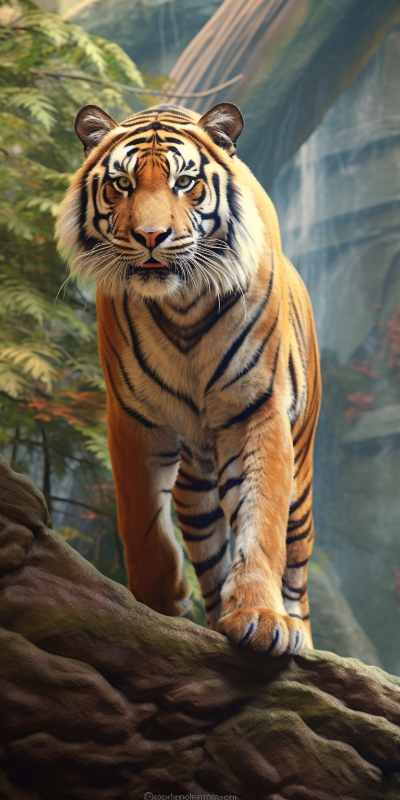
| Bengal Tiger | |
|---|---|
| Size | 3-3.5 feet (0.9-1.1 meters) at the shoulder |
| Weight | Up to 500 pounds (227 kilograms) |
| Speed | Speed: 35 mph (56.33 km/hr) |
| Key Strength | Powerful jaws and sharp claws |
| Biggest Weakness | Vulnerable to attacks on the neck and back |
| Scientific Name | Panthera tigris tigris |
| Family | Felidae |
| Habitat | Forests, grasslands, and wetlands |
| Geography | Indian subcontinent, including India, Bangladesh, Bhutan, and Nepal |
| Diet | Carnivorous, primarily deer and wild boar |
| Lifespan | 10 years - 16 years |

The Bengal Tiger
The Bengal Tiger, also known as Panthera tigris tigris, is a majestic creature native to the Indian subcontinent. With its distinctive orange coat adorned with black stripes, the Bengal Tiger is easily recognizable. It is the largest cat species in the world, weighing up to 500 pounds and measuring over 10 feet in length, including the tail. Possessing powerful jaws and sharp teeth, these tigers are formidable hunters, preying on various ungulates such as deer and wild boar. Their keen senses of sight, smell, and hearing, along with their exceptional agility, make them proficient predators in their forested habitats.
Fun Fact: The Bengal Tiger has the ability to swim, which sets it apart from other big cats - it is known to effortlessly cross rivers and streams, making it highly adaptable to its diverse environment.
| Bengal Tiger | |
|---|---|
| Size | 3-3.5 feet (0.9-1.1 meters) at the shoulder |
| Weight | Up to 500 pounds (227 kilograms) |
| Speed | Speed: 35 mph (56.33 km/hr) |
| Key Strength | Powerful jaws and sharp claws |
| Biggest Weakness | Vulnerable to attacks on the neck and back |
| Scientific Name | Panthera tigris tigris |
| Family | Felidae |
| Habitat | Forests, grasslands, and wetlands |
| Geography | Indian subcontinent, including India, Bangladesh, Bhutan, and Nepal |
| Diet | Carnivorous, primarily deer and wild boar |
| Lifespan | 10 years - 16 years |
Match Highlights
Bengal Tiger Matchups
We use AI to simulate matchups between the Bengal Tiger and other animals. Our simulation considers size, strength, and natural predatory behaviors to determine the most likely outcome.
Bengal Tiger: Diet, Predators, Aggression, and Defensive Behaviors
What do Bengal Tigers eat?
Bengal Tigers are carnivores and primarily hunt large mammals such as deer and wild boar. They are also known to prey on smaller animals like rabbits and birds. Their diet mainly consists of ungulates, which they ambush and take down with their powerful jaws and sharp claws.
Do Bengal Tigers have any predators?
As apex predators, Bengal Tigers do not have any natural predators in their ecosystem. However, they may encounter competition from other large predators like leopards and dholes (wild dogs) for food and territory. Human activities such as poaching and habitat destruction pose the biggest threat to their population.
Are Bengal Tigers aggressive?
Bengal Tigers are solitary animals and can be aggressive when defending their territory or hunting for food. They are known for their strength and agility, making them formidable predators. However, they generally avoid confrontation and only become aggressive when provoked or threatened.
Do Bengal Tigers fight with each other?
Male Bengal Tigers are territorial animals and will engage in fights with other males to establish dominance and secure mating rights. These conflicts are usually fierce but are rarely fatal, as one tiger will typically back down after realizing the other's strength.
How do Bengal Tigers defend themselves?
Bengal Tigers have several adaptations to defend themselves from potential threats. They rely on their camouflage and stealth to ambush prey or evade predators. When threatened, they will use their sharp claws and powerful jaws to fend off attackers. They may also vocalize loudly to intimidate rivals or predators.
What is the biggest weakness of Bengal Tigers in a fight?
Despite their size and strength, Bengal Tigers have a vulnerability in prolonged fights due to their limited stamina. They are built for short bursts of speed and power rather than endurance, so they may tire quickly in extended battles. This weakness is often exploited by their prey or rivals during confrontations.
Fun Fact: Despite their fierce reputation, Bengal Tigers are actually excellent climbers and often ascend trees to get a better vantage point, seek refuge, or stalk their prey from above.
Fun Fact: The roar of a Bengal Tiger can be heard up to two miles away, serving as both a warning and communication tool within their territory, making their presence known to other tigers and animals in the vicinity.














